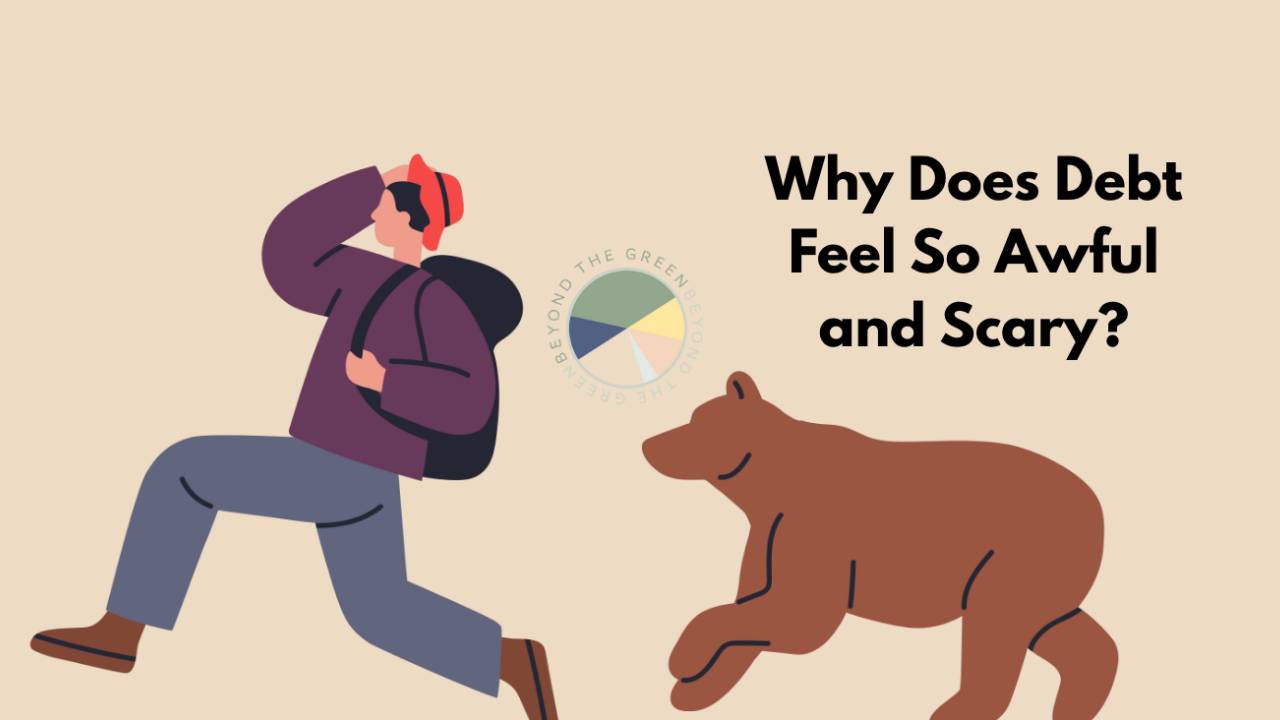Why Does Debt Feel So Awful and Scary?
May 07, 2025
Why does debt feel so scary and awful?
Is it because it’s actually bad? Like it’s going to knock down your door, take your dog, your children, and all your belongings away? Not really. Debt feels terrifying because your nervous system is reacting as if debt is a cheetah coming to take your babies away. It triggers a primal response, putting you into survival mode: fight, flight, or freeze.
Understanding the Nervous System’s Role
Your nervous system has two main parts: the sympathetic nervous system (fight or flight) and the parasympathetic nervous system (rest, digest, and heal). The sympathetic system reacts to stress. It’s the part of you that says, “There’s a cheetah—RUN! ”Even though we aren’t facing cheetahs on the daily anymore, this system is still essential. It gives us energy in the morning, motivates us, and helps us progress. But when financial stress keeps us in a constant state of fight or flight, our bodies start to break down.
On the flip side, the parasympathetic system is all about restoration. It allows you to heal, digest, and reproduce. It’s what helps your body recover when you get a cut or fight off a sickness. The problem? When you’re stuck in a chronic state of stress, you can’t switch to this mode. You’re constantly pumping stress hormones like cortisol, and it’s wreaking havoc on your body and mind.
How Stress Affects Your Body and Financial Decisions
Okay, we're about to get really nerdy here, so buckle up
When your body perceives danger, your hypothalamus signals the pituitary gland to alert the adrenal glands. The adrenal glands then flood your body with cortisol, preparing you to fight or flee. This is helpful in short bursts but harmful when it’s constant. Chronic stress keeps your body in overdrive, damaging cells and throwing off your hormonal balance.
Cortisol moves your energy to your arms and legs, making it harder to think clearly or make long-term decisions. That’s why, in a state of financial stress, even small decisions—like what to have for dinner—feel overwhelming. Your brain simply doesn’t have the energy to prioritize logic.
What Does This Look Like in Real Life?
When financial stress takes over, it leads to burnout and impulsive decisions. For example:
- "I need a vacation. I’ll just take out a personal loan or open a credit card. I’ll figure out how to pay for it later."
- "I’m tired of commuting. I’ll get a new car without considering the loan terms."
We spend emotionally, driven by hormones like cortisol and dopamine. Each transaction reinforces a negative feedback loop: stress leads to avoidance, which leads to more stress. Every declined card or overdue bill becomes another reason to panic.
Breaking the Cycle
The first step to breaking this cycle is awareness. Recognize that your body is reacting to perceived danger, not real danger. From there, you can begin shifting your nervous system from fight or flight to rest and restore. The result? A clearer mind and the ability to make thoughtful, rational financial decisions.
Ready to tackle your money mindset, for good.
Beyond The Basics: Our Glossary Of Financial Terms
We define the lingo you'll need to become a finance expert!
We hate SPAM. We will never sell your information, for any reason.




